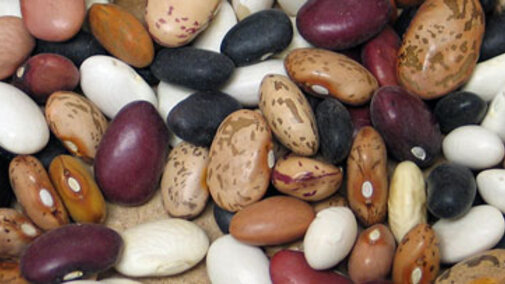Results of the 2018 variety trials for dry edible beans conducted by the University of Nebraska Panhandle Research and Extension Center have been posted to CropWatch at https://cropwatch.unl.edu/varietytest/othercrops.
Variety trial results for dry beans as well as other crops grown in the Panhandle, such as peas, oats, proso millet, and sunflower, are available in the Variety Trial section of CropWatch.
The 2018 dry bean variety trials were planted at two locations, the Scottsbluff Ag Lab at the Panhandle Research and Extension Center and the Mitchell Ag Lab five miles north of the center. At the Mitchell Ag Lab, three market classes were planted: Great Northern, kidney, and pinto. At the Scottsbluff Ag Lab, all market classes were planted, including pinto, Great Northern, kidney, black and miscellaneous.
The trials were conducted and results were compiled by Carlos Urrea, dry bean breeding specialist, and Eduardo Valentin, research technologist with the university's Dry Bean Breeding Program.
The dry bean report includes a description of the trials and 10 tables that list yield, moisture, test weight, and other data for each variety within the market classes. The description includes detailed information, such as planting dates, seeding rates, herbicide treatments, row width, irrigation, harvest date, and other details.
In addition to the website, the report will be published in the Bean Bag newsletter published by the Nebraska Dry Bean Growers Association and as a Nebraska Extension publication. The publication is expected to be ready in time for the annual Dry Bean Day in February.
Urrea expressed gratitude to Bob Hawley, long-time research technician who retired last year, for help planting the trials, Extension Educator Gary Stone for help cleaning the bean samples, Farm Manager Gene Kizzire and his summer farm crew for help with agronomic management, and Ann Koehler for editing the document. He also expressed appreciation to the Nebraska Dry Bean Commission for financial support.

